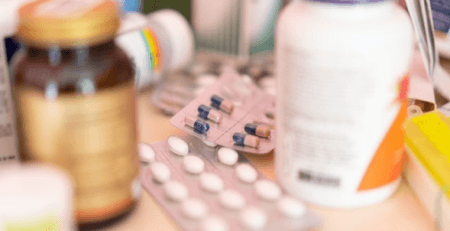Choosing Generic Over Brand Name Medications
When you receive a prescription from your doctor, you may expect a specific brand-name drug, only to find a different name on the medication bottle at the pharmacy. Your pharmacist might explain that your insurance covers the generic version or that the generic is more affordable. This situation raises common questions: Are generic drugs the same as brand-name drugs? Are they as effective? Should you ever insist on the brand-name version? This article explores these questions and provides key information to help you make informed decisions about your medications.
What Are Generic Drugs?
Generic drugs are essentially identical to their brand-name counterparts in terms of:
- Active Ingredients: Generics contain the same active ingredients as the brand-name drug, ensuring equivalent therapeutic effects.
- Dosage and Strength: They are formulated in the same doses and strengths.
- Purpose: Generics are prescribed for the same medical conditions.
- Administration: They are taken in the same way (e.g., orally, via injection).
- Side Effects and Risks: Generics have the same potential side effects and risks as the brand-name version.
In the United States, the Food and Drug Administration (FDA) ensures that generic drugs meet strict standards for safety, efficacy, and quality, equivalent to brand-name drugs. In Canada, Health Canada enforces bioequivalence standards, meaning generics must produce the same therapeutic effect in the body as their brand-name counterparts.
Why Are Generic Drugs Cheaper?
Brand-name drugs are developed through extensive research, testing, and marketing, which drug companies recoup through higher pricing during the patent period. Once the patent expires, other manufacturers can produce generic versions without the same development costs, allowing them to offer the drug at a lower price—often up to 85% less than the brand-name version. Some brand-name manufacturers also produce their own generics, known as “authorized generics,” to remain competitive.
The cost savings are significant. According to a 2023 report by the Association for Accessible Medicines, generic drugs saved the U.S. healthcare system approximately $2.3 trillion over the past decade.
Are There Any Differences Between Generic and Brand-Name Drugs?
While the active ingredients in generic drugs must be identical to those in brand-name drugs, differences may exist in:
- Inactive Ingredients: Generics may use different fillers, binders, flavorings, or dyes. For example, a generic might include lactose or gluten, which could cause issues for individuals with specific allergies or sensitivities.
- Appearance: Generics often differ in color, shape, size, or packaging, which can be noticeable but does not affect their efficacy.
- Manufacturing: Although all drugs must meet stringent regulatory standards, slight variations in manufacturing processes may occur.
In rare cases, patients may experience different side effects or responses to a generic drug due to sensitivities to inactive ingredients or other unidentified factors. If you suspect a problem, consult your doctor or pharmacist immediately.
What Happens When Switching to a Generic Drug?
Switching from a brand-name drug to a generic typically goes unnoticed by most patients, except for the cost savings. However, you may observe differences in the pill’s appearance or taste. If you experience unexpected side effects or feel the generic is less effective, inform your healthcare provider. They can investigate potential causes, such as sensitivities to inactive ingredients, by consulting resources like the Compendium of Pharmaceuticals and Specialties (CPS) or contacting the drug manufacturer.
Should You Ever Insist on a Brand-Name Drug?
In most cases, generics are a cost-effective and equally effective option. However, there are situations where a brand-name drug may be preferred:
- Medical Necessity: If you have a known sensitivity to an inactive ingredient in the generic or a unique medical condition, your doctor may specify “no substitutions” on the prescription.
- Insurance Requirements: Many insurance plans prioritize generics to manage costs, but you can appeal a coverage decision if you and your doctor believe the brand-name drug is essential. Discuss your options with your doctor and pharmacist.
Additional Considerations
- Bioequivalence Variability: While generics are rigorously tested for bioequivalence, some patients with conditions requiring precise dosing (e.g., epilepsy or thyroid disorders) may notice subtle differences. Always monitor your response to a new medication and report concerns.
- Pharmacy Policies: Some pharmacies automatically substitute generics unless otherwise specified. Always review your medication label and ask questions if the drug differs from what you expected.
- Global Standards: Regulatory standards vary by country. In the U.S. and Canada, generics are held to high standards, but if you’re traveling or obtaining medications from abroad, research the regulatory requirements of that country.
Making Informed Choices
For most people, generic drugs offer the same benefits as brand-name drugs at a fraction of the cost. The savings can be substantial, benefiting both individuals and healthcare systems. However, it’s essential to stay vigilant about your body’s response to any medication, whether generic or brand-name. Communicate openly with your doctor and pharmacist to ensure your treatment plan meets your needs.
If you have concerns about generics or want to explore brand-name options, discuss them with your healthcare provider. They can guide you through the decision-making process, including navigating insurance coverage and potential appeals.
By understanding the similarities and differences between generic and brand-name drugs, you can make confident choices about your healthcare while maximizing savings.










